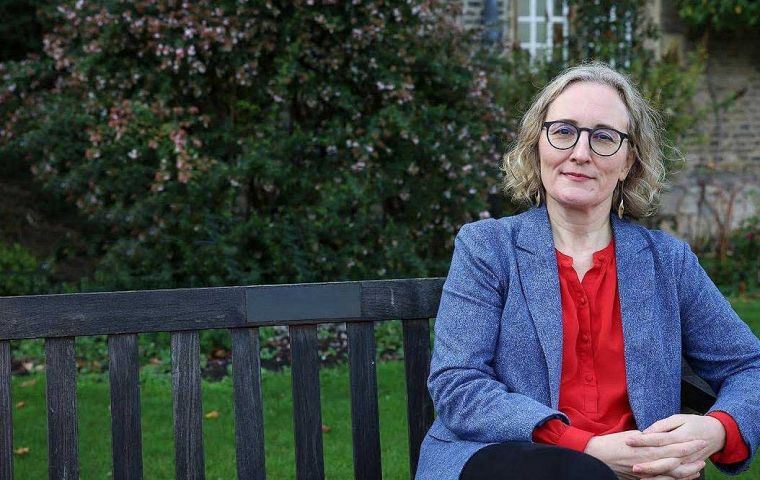MercoPress. South Atlantic News Agency
Cambridge Dictionary names AI related 'parasocial' as the Word of the Year 2025
 Simone Schnall, Professor of Experimental Social Psychology at Cambridge, said: “Parasocial is the perfect Word of the Year. (Pic Cambridge University)
Simone Schnall, Professor of Experimental Social Psychology at Cambridge, said: “Parasocial is the perfect Word of the Year. (Pic Cambridge University) The word is defined by the Cambridge Dictionary as ‘involving or relating to a connection that someone feels between themselves and a famous person they do not know, a character in a book, film, TV series, etc, or an artificial intelligence’.
Cambridge University Press & Assessment, the publisher of the Cambridge Dictionary, says that the year was marked by interest in the one-sided parasocial relationships that people form with celebrities, influencers and AI chatbots.
'Parasocial' is one of several AI-related words that were added or updated in the Cambridge Dictionary this year, including ‘slop’, meaning ‘content on the internet that is of very low quality, especially when it is created by AI’.
Simone Schnall, Professor of Experimental Social Psychology at the University of Cambridge, said: “Parasocial is the perfect Word of the Year.
“The rise of parasocial relationships has redefined fandom, celebrity and, with AI, how ordinary people interact online.
”We’ve entered an age where many people form unhealthy and intense parasocial relationships with influencers. This leads to a sense that people ‘know’ those they form parasocial bonds with, can trust them and even to extreme forms of loyalty. Yet it’s completely one sided.”
The term dates back to 1956, when University of Chicago sociologists Donald Horton and Richard Wohl observed television viewers engaged in ‘para-social’ relationships with on-screen personalities, resembling those they formed with ‘real’ family and friends. They noted how the rapidly expanding medium of television brought the faces of actors directly into viewers’ homes, making them fixtures in people’s lives.
Colin McIntosh of the Cambridge Dictionary said: “Parasocial captures the 2025 zeitgeist. It's a great example of how language changes.
“What was once a specialist academic term has become mainstream. Millions of people are engaged in parasocial relationships; many more are simply intrigued by their rise.
“The data reflects that, with the Cambridge Dictionary website seeing spikes in lookups for ‘parasocial’.” (Adapted from the Cambridge University Press & Assessment website).




Top Comments
Disclaimer & comment rulesCommenting for this story is now closed.
If you have a Facebook account, become a fan and comment on our Facebook Page!